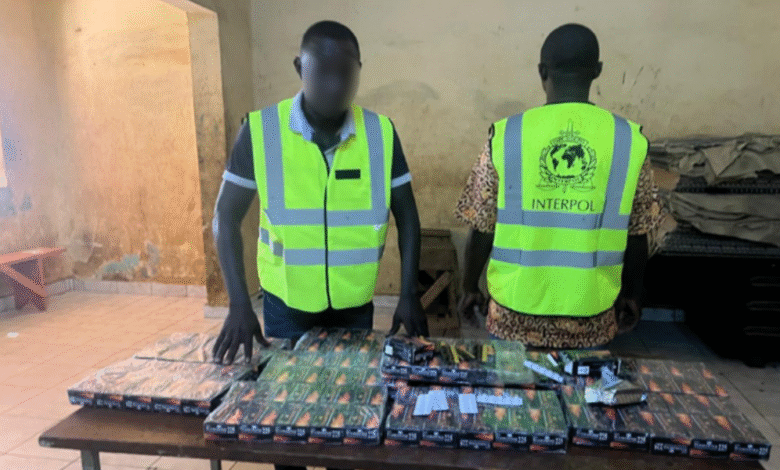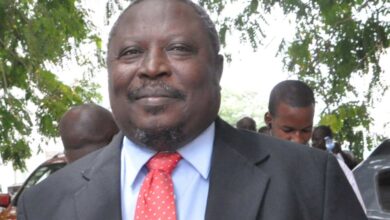Ghanaians among 62 other nationals arrested in INTERPOL operation across West Africa

INTERPOL’s latest border security sweep across West Africa has resulted in dozens of arrests of Ghanaians and other nationals with significant seizures of weapons, explosives, drugs and counterfeit goods, according to details released after the four-month operation.
The initiative, Operation Screen West Africa 2025, ran from July to October and brought together security agencies from 12 countries to strengthen border checks, track terrorism suspects and disrupt organised crime.
Officers deployed INTERPOL Mobile Devices and other systems at land, air and sea entry points, conducting 1.7 million real-time checks, an increase from 1.3 million the previous year.
Police recorded 62 arrests, including nine individuals suspected of links to terrorist activity, and generated nearly 250 hits on INTERPOL databases. These included Red Notices and Blue Notices tied to terrorism investigations.
Among the key outcomes were the arrests in Burkina Faso of two suspects wanted by authorities in Côte d’Ivoire for involvement in Al-Qaeda-affiliated JNIM attacks that killed more than ten Ivorian security personnel in 2020.
A third terrorism-linked suspect, subject to a 2024 Blue Notice issued by Togo, was also arrested in Burkina Faso.
INTERPOL’s Executive Director for Police Services, Cyril Gout, said the arrests demonstrate how coordinated operations and access to INTERPOL’s systems “can make the links that identify suspected terrorists and disrupt their attempts to create fear and endanger communities.”
In Ghana, officers rescued 21 victims of human trafficking who had been held in Nigeria and exploited in online fraud schemes.
Checks at ports and in territorial waters also targeted vessels using deceptive practices, including identity tampering, switching off tracking systems and frequent flag changes.
Items seized during the operation included weapons and ammunition caches, explosives, 136 stolen vehicles, 731 kg of cannabis, counterfeit medicines, fraudulent documents and counterfeit currency. INTERPOL noted that proceeds from such activities often help finance terrorism and organised crime.




